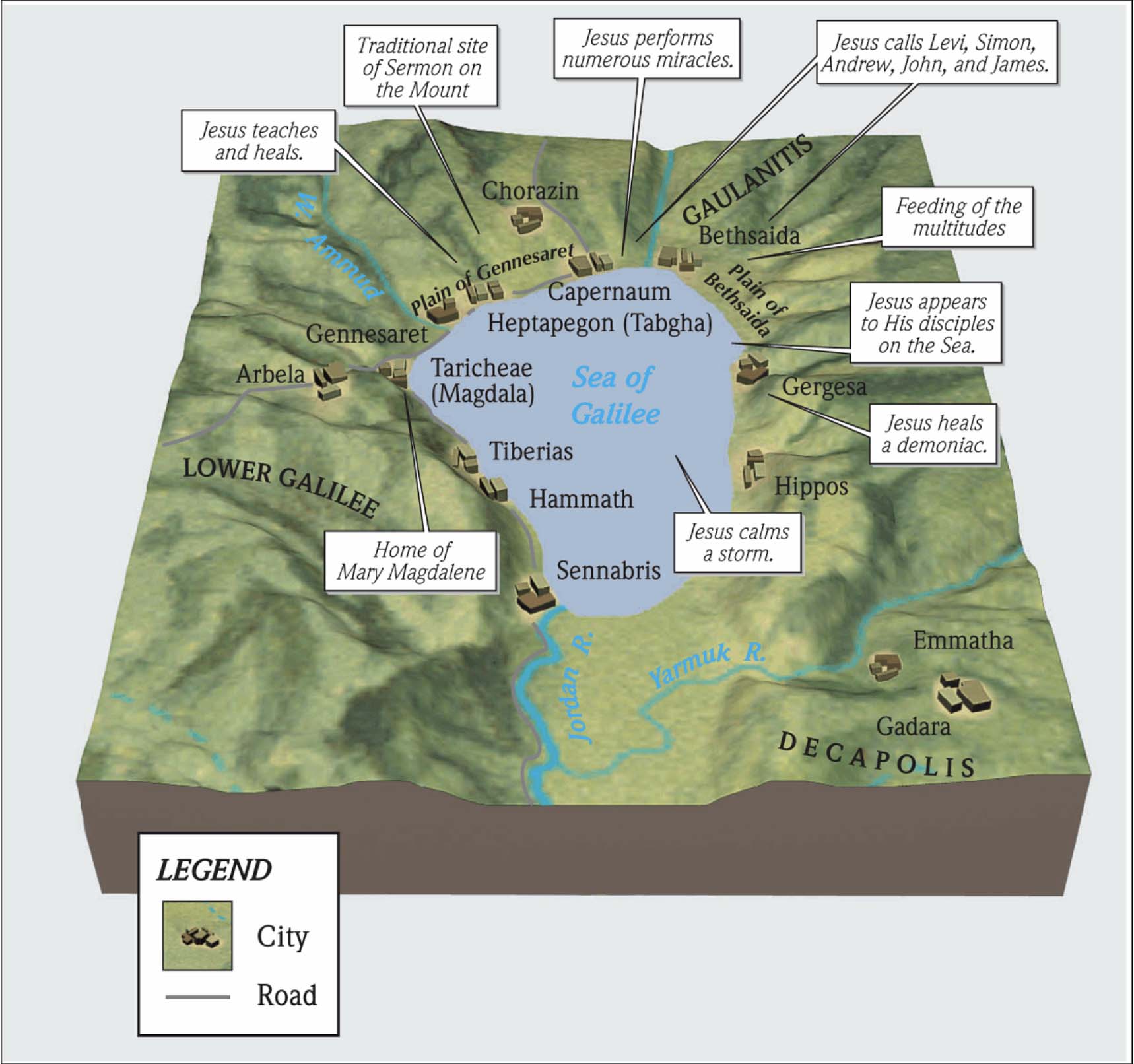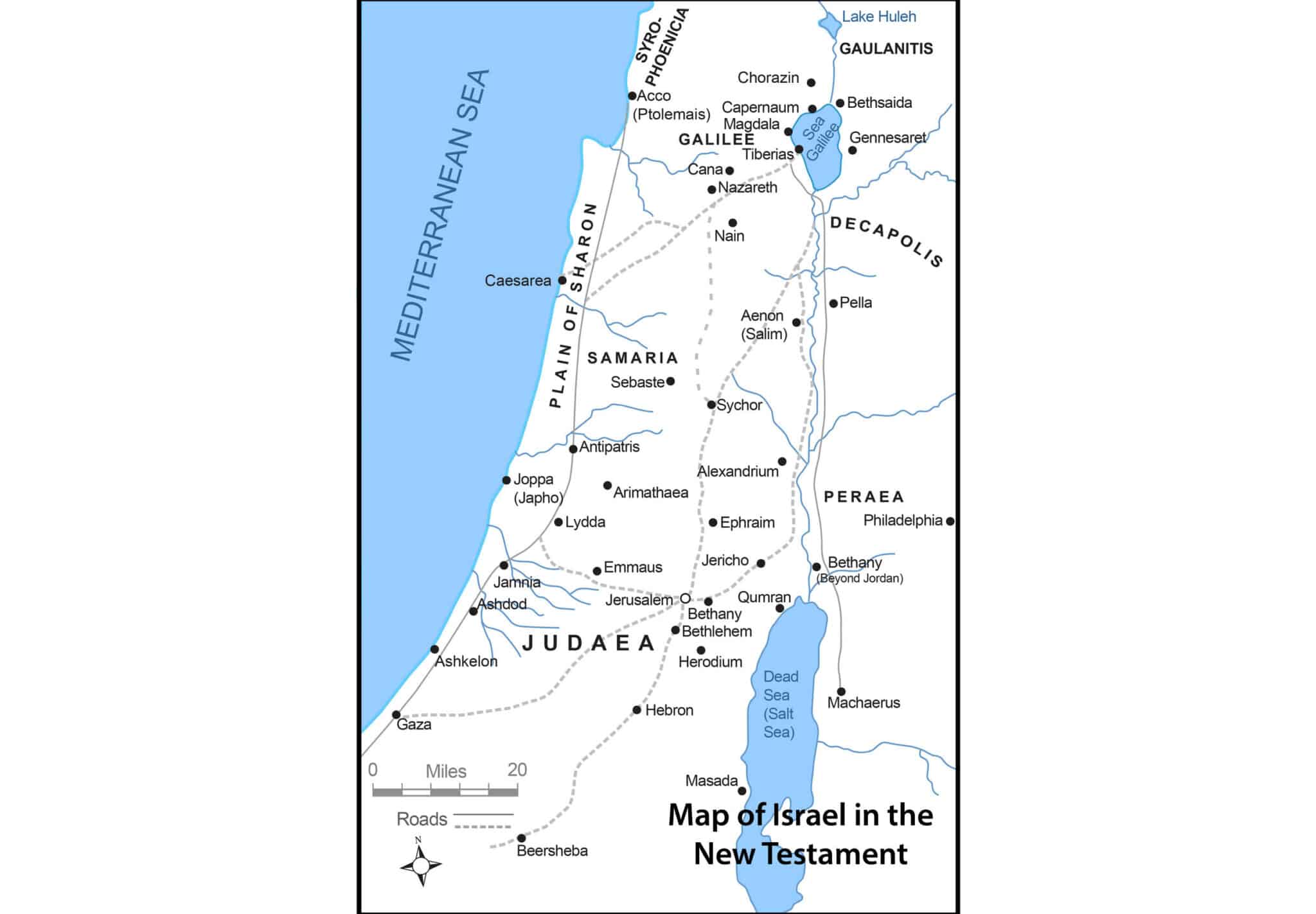The disciples express a concern to Jesus that He is insulting the Pharisees. Beneath their concern is that these insults will alienate Jesus from the cultural powerbrokers and hinder His mission and/or the disciples’ future status. Jesus responds to their concern with two metaphors and a piece of advice.
A parallel gospel account of Matthew 15:12-14 is found in Luke 6:39.
Then after the crowds had dispersed, the disciples came to Jesus with some advice, disguised as an observation. Do You know that the Pharisees were offended when they heard this statement? (v 12). They were concerned about how Jesus had offended the Pharisees, when He exposed their hypocrisy. The disciples’ warning was not totally unwarranted.
The Pharisees were not to be trifled with. They wielded great influence among the people. They were cultural heroes and exemplars of faithfulness in the eyes of the Jews. The Pharisees could prove helpful allies or powerful enemies.
One would have expected the Pharisees to be allies. They were the conservative, Bible-believing, inerrantists, who should have been Jesus’s people. This is likely why Jesus was so harsh with them; they had the truth, and should have known better. This made their sin all the greater.
Jesus is generally direct with those who have the truth. As Jesus told the Laodicean church: “Those whom I love, I reprove and discipline” (Revelation 3:19). This was shortly after Jesus told the same believers: “… you do not know that you are wretched and miserable and poor and blind and naked” (Revelation 3:17). We know some Pharisees came to faith in Jesus (Acts 15:5). But many did not.
But Jesus did not fear them. And He refused to compromise His mission by seeking harmony (“dikaiosune”–righteousness) with them.
He answered His disciples with two metaphors describing the Pharisees, sandwiched around a piece of advice.
The first metaphor Jesus used to describe the Pharisees was agricultural. Every plant which My heavenly Father did not plant shall be uprooted (v 13). In this analogy, Jesus compares His heavenly Father to a planter. This planter could be a gardener or a farmer. This planter is completely reworking his garden or field. And he has a clear vision for what he wants it to become and how he needs to do to accomplish it.
One of the steps this planter will take is to uproot every plant that the planter did not plant (v 13). These plants have no purpose or place in his garden or fields. The garden or fields where the planter is planting is God’s kingdom. And the Pharisees or their works are fruitless plants. The Pharisees were about themselves and their kingdom. They were only interested in seeking God’s kingdom on their terms. They were not interested in seeking God’s kingdom on His terms. Because they were not planted in God’s kingdom by the Father, they were going to be uprooted. The Pharisees may be like the tares in the Lord’s parable of the wheat and tares (Matthew 13:37-43).
If the plants refer to works instead of the Pharisees themselves, they are works that may be good, but are manufactured and performed on the basis of human achievement and effort and not by faith and dependence upon the power of God’s grace. The Pharisees performed many works, and some may have appeared to be good. But they performed them in their own strength in order to be honored among men. These works did not honor God. The heavenly Father is not interested in these kinds of works and He shall uproot every plant of this kind.
What Jesus desires is for His followers to live a life abiding in Him. As He told His disciples, likely while walking through a vineyard:
“Abide in Me, and I in you. As the branch cannot bear fruit of itself unless it abides in the vine, so neither can you unless you abide in Me. I am the vine, you are the branches; he who abides in Me and I in him, he bears much fruit, for apart from Me you can do nothing. If anyone does not abide in Me, he is thrown away as a branch and dries up; and they gather them, and cast them into the fire and they are burned.”
(John 15:4-6)
In this passage from John 15, Jesus makes clear that those who do not abide in Jesus will not bear fruit, so their deeds will only be good as kindling for the fire. This will be like the works of “wood, hay, straw” that are burned in the fire of God’s refining judgement (1 Corinthians 3:12-13).
The Apostle Paul stated that “… whatever is not from faith is sin” (Romans 14:23).
Between this metaphor of God uprooting plants from His kingdom, and the next describing the Pharisees, Jesus gives His disciples a piece of advice for how to deal with them: Let them alone He told them.
Jesus’s policy was generally to ignore the Pharisees as much as possible. Most, if not all, of His confrontations with the Pharisees began when they challenged Him, and a confrontation could not be avoided. Basically, Jesus counseled them to ignore the Pharisees and not worry about what they said or did.
Here, Jesus seems to be addressing the disciples’ fear of the backlash that Jesus—and by extension they themselves—would receive if Jesus continued to insult the Pharisees who were the cultural gatekeepers of Judaism. But Jesus said leave them alone to their kingdom, we must be about My heavenly Father’s kingdom (Matthew 6:33).
Jesus’s advice to His disciples in dealing with people like the Pharisees is similar to that which He gave when He sent His disciples to preach the kingdom of heaven unto the lost sheep of the house of Israel (Matthew 10:5-42), which was: “Beware of men, for they will hand you over to the courts and scourge you in their synagogues” (Matthew 10:17). Jesus was teaching them how to be shrewd (Matthew 10:16). And He was warning them of the cost they would pay for following Him (Matthew 10:24-25). That is why they needed to “beware.” In this passage in Matthew 15, a part of the shrewdness is to let them alone.
This also fits with Jesus’ teaching in His Sermon on the Mount. Jesus gave the “Log, dog, hog principle,” telling people that they SHOULD engage in correcting faults in themselves, when they learn of the fault by seeing it in others, but they should NOT engage in trying to correct someone who does not understand that correction is holy and valuable (Matthew 7:3-6).
Jesus finished His response to the disciples’ concern with another metaphor: They are blind guides of the blind (v 14). A guide is someone who leads others through unfamiliar territory or circumstances. He helps others “see” and navigate to their destination or goal.
The Pharisees were the esteemed guides of Judaism in Jesus’s day. Following their return from the Babylonian captivity, circa 539 BC, they had re-instituted the scriptures and God’s commandments throughout Judea. The people looked to them and their example to understand how to live faithfully. But the Pharisees were blind to God, His kingdom, and to Jesus, their Messiah. They were the leaders of the people, but they were spiritually blind leaders of spiritually blind people.
A blind guide is useless because he cannot see where he himself is going. He is unable to lead his followers to their destination. He is more likely to lead them into harm than success. And if a blind man guides a blind man, both will fall into a pit (v 14). In this metaphor Jesus was telling the disciples that following the Pharisees will not lead people to God’s kingdom. Following them will lead to ruin. And just as a sane person would ignore the directions of a blind man, so should they let the Pharisees alone (v 14).
Luke records that Jesus also told this as a short parable.
“And He also spoke a parable to them: ‘A blind man cannot guide a blind man, can he? Will they not both fall into a pit?’”
(Luke 6:39)
Biblical Text
12 Then the disciples came and said to Him, “Do You know that the Pharisees were offended when they heard this statement?” 13 But He answered and said, “Every plant which My heavenly Father did not plant shall be uprooted. 14 Let them alone; they are blind guides of the blind. And if a blind man guides a blind man, both will fall into a pit.”
Check out our other commentaries:
-
Matthew 18:23-35 meaning
Jesus tells Peter a parable to emphasize the importance of unlimited forgiveness. It is about how the king forgives an absurdly unpayable debt of one...... -
Hosea 2:1 meaning
The LORD anticipates a time when He will once again accept Israel as His people and have compassion on them....... -
Matthew 19:3-9 meaning
The Pharisees come to Jesus and test Him about what Moses said about divorce. They were trying to trap Him. Jesus begins His answer by...... -
Ecclesiastes 10:16-20 meaning
There is a time and place for pleasure, but when pleasure replaces industry, evil follows. ...... -
Proverbs 3:27-32 meaning
One of the clearest and most powerful manifestations of a heart of wisdom is the way one treats one’s neighbor.......




